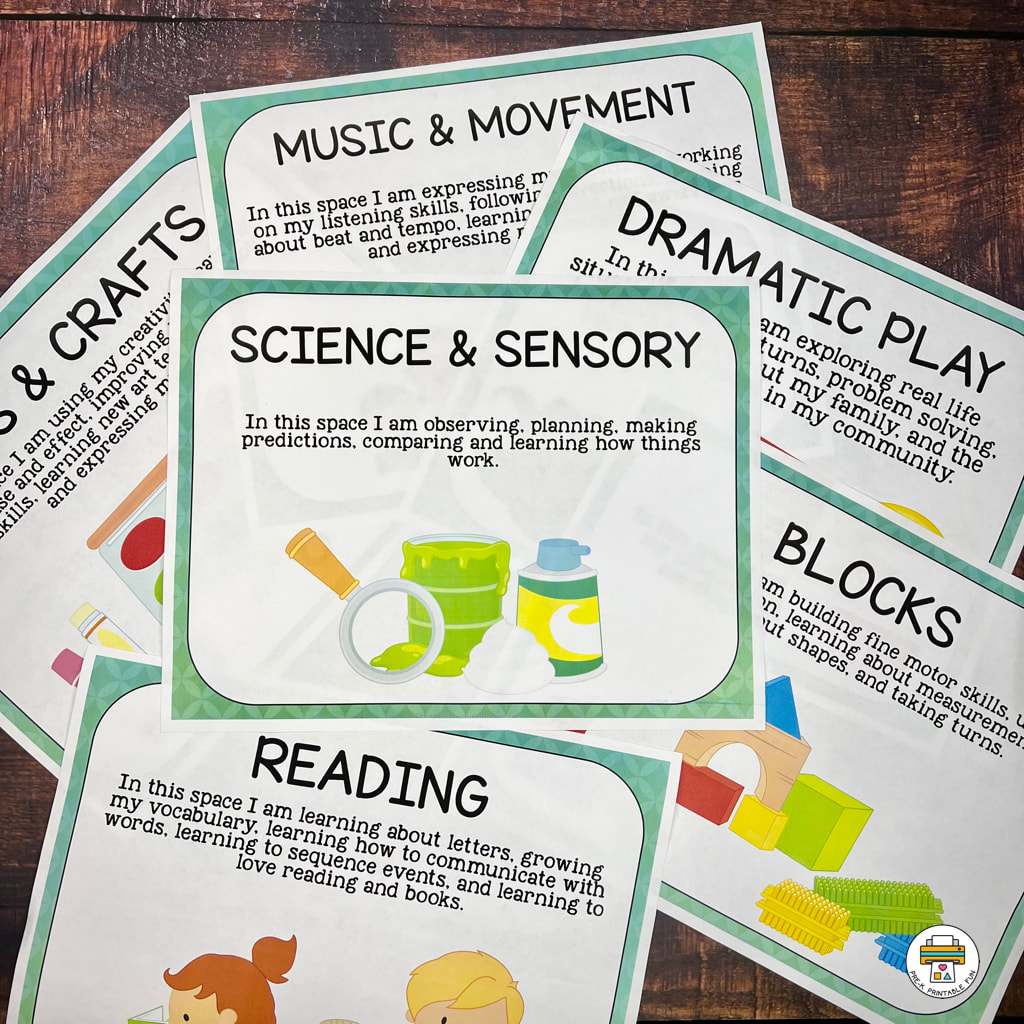Card Games for Early LearnersI have fond memories of sitting around my Grandma's dining room table with all of the grownups, playing a great round of go fish. Little learners love card games! Not only are they fun, but Preschool aged children can also practice a variety of math concepts with a simple deck of playing cards. Since they feature Kings & Queens, they are also a great addition to your Medieval Fantasy and Fairy Tales Theme! Below, I'm sharing 11 of my favorite card games for your your early learners! letters vs. numbers Beginning to differentiate between letters and numbers is an important early learning skill. To play this game, simply shuffle a deck of cards and encourage your child to sort the cards into two different piles. One containing letters, and the other numbers. Play side by side! Take turns drawing, and sorting! sorting by suit With this game your children are practicing visual discrimination. Take some time to explain the four different suits. Start the game by placing a card from each suit face up as your starting card. Shuffle the rest. Take turns flipping a card, and placing it on the correct pile. Sorting numbers After isolating your numbered cards, you can have your child practice sorting the numbered cards 2-10 into piles. Build gross motor skills by placing your 9 piles around the room. Encourage them to hop to each pile, or crawl to each pile as they sort the cards. ordering from 2-10 With this game children will practice ordering cards from a single suit from 2-10. After your child has mastered this activity you can extend the learning by sorting all suits in order. greater vs. less thanKids love guessing games. For this game, isolate your number cards from one suit, shuffle them, and place them face down in a pile. Draw a card (without revealing it to your child). Have your child guess a number. If they are correct they keep the card, if not, give your child a clue. Let them know whether your number is greater or less than the number they guessed until they finally guess the right one. Play continues until all cards have been collected. Flip & Count Practice counting with a deck of cards. Isolate all of the number cards, shuffle, and place them face down in a pile. Provide your child with counters of your choice. Your child will practice flipping over a card and counting with one-to-one correspondence, until they've placed the correct amount of counters on the table. Extend the learning by placing a portion of the counters on the table, and having them figure out "how many more" they need to add to equal the amount on the card. Missing Number In this fun game we have a sneaky Joker who likes to steal cards. Isolate cards 2-10 in a single suit, and place them in order. Have you child close their eyes and replace a card with a Joker. After your child opens their eyes, they can identify which numbered card was stolen. Return the card and play again until all numbers have been identified. Before and after For this two player game children practice identifying numbers that come before and after. To set it up: Shuffle all number cards 2-10. Deal 4 cards face down to each player, and place remaining cards face down in a draw pile. To play: Player 1 flips a card face up from the draw pile. Next, player 1 searches their hand for a card that contains a numbered card that comes either before or after the one facing up on in the discard pile. If player 1 has a corresponding card they place it on top of the discard pile. If not, they get a second chance. For their second chance, player 1 can flip over a new card from the draw pile and try to discard again. If they cannot discard play passes to the next player. The next player repeats the process of attempting to play onto the discard pile, or taking a second chance draw. Play continues until a player discards their 4 cards. memory match up Memory games are fantastic! Simply face your cards face down and encourage your child to find matching pairs of numbers (or suits, or colors). go fish Who doesn't love a good old fashioned game of go fish? In this cooperative game young children are also learning patience, and taking turns. patterning On a piece of paper draw a suit pattern. Encourage your child to use the deck of cards to extend your pattern. After mastering an AB pattern, you can practice other pattern combinations such as ABB, ABC, and ABCD patterns. You might also like
|
What can I help you find?
Become a MemberGet Free
|
Learning Centers
Preschool Learning Centers are commonly referred to as Preschool Centers, or Learning Spaces. These are activity areas dedicated to a specific type of of play and exploring a variety of topics and activities. Download our Free set of Center Signs!
|
Site
|
|

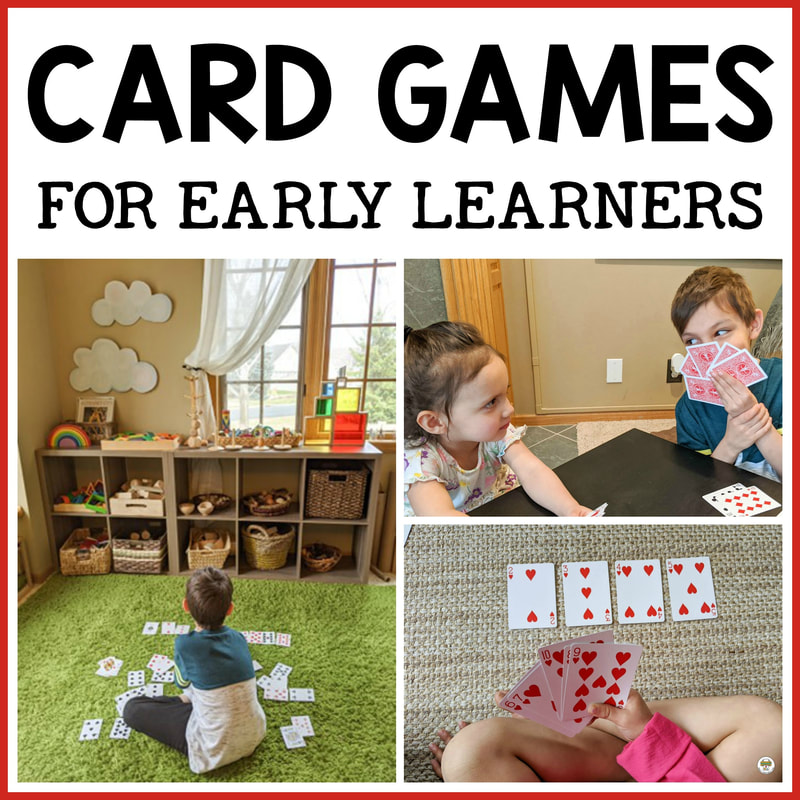
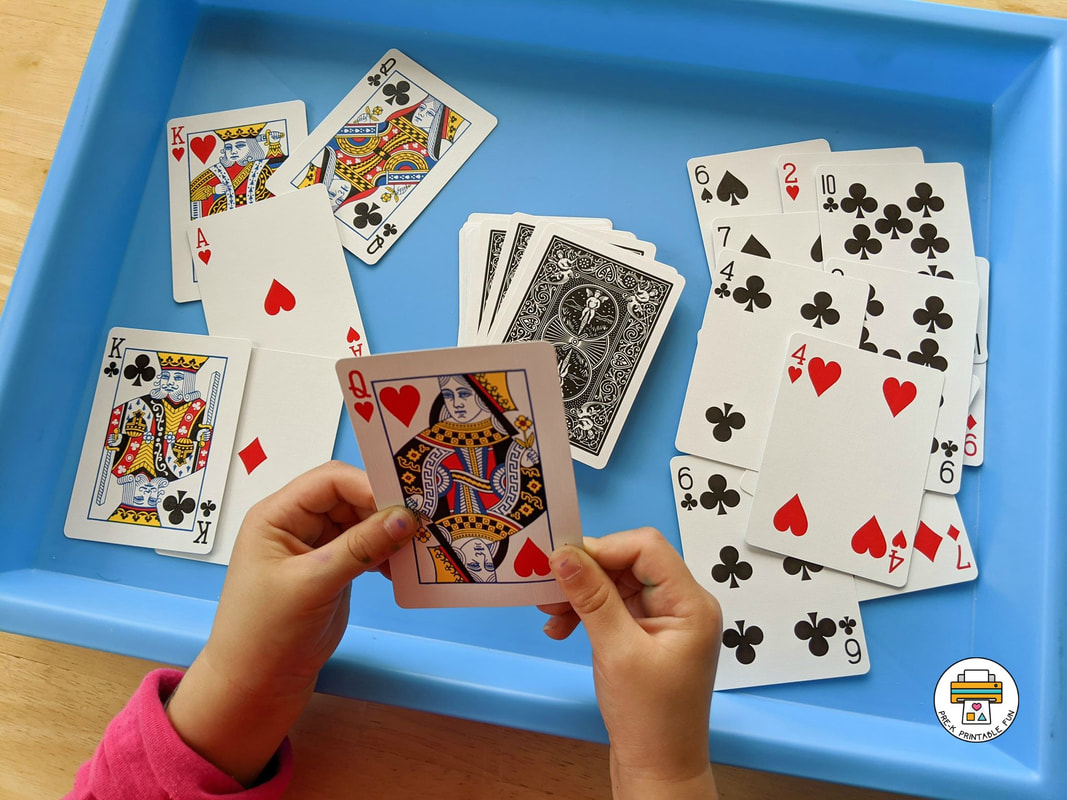
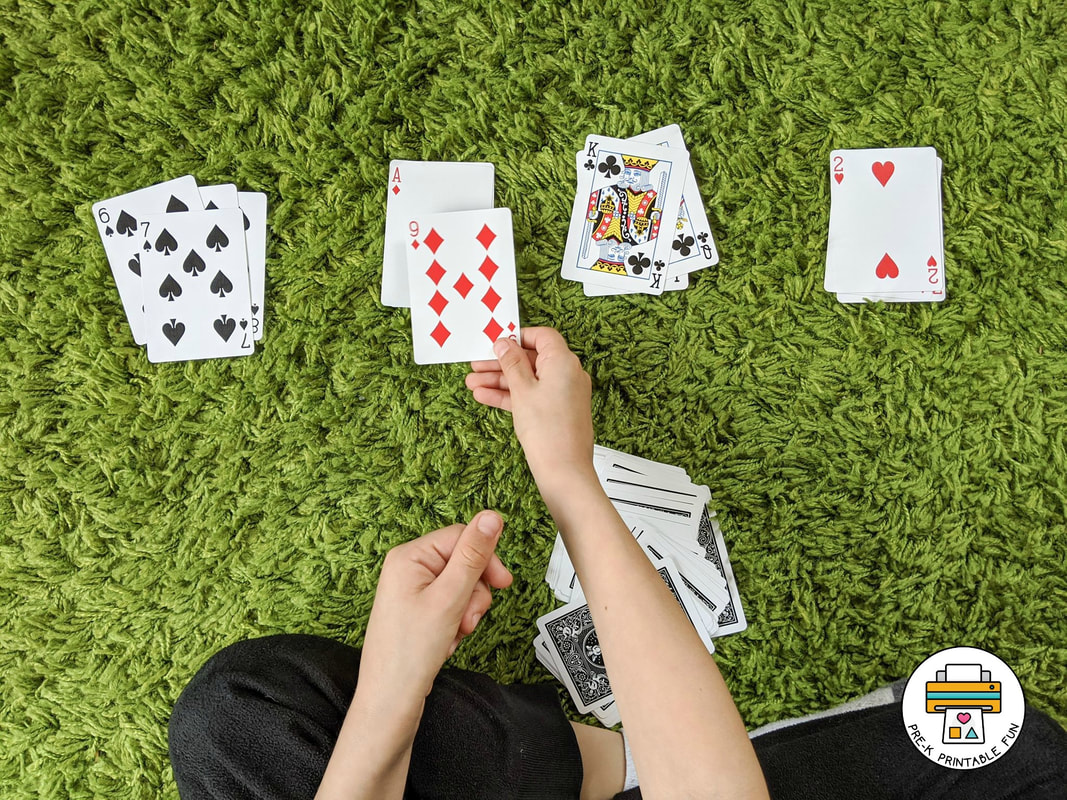
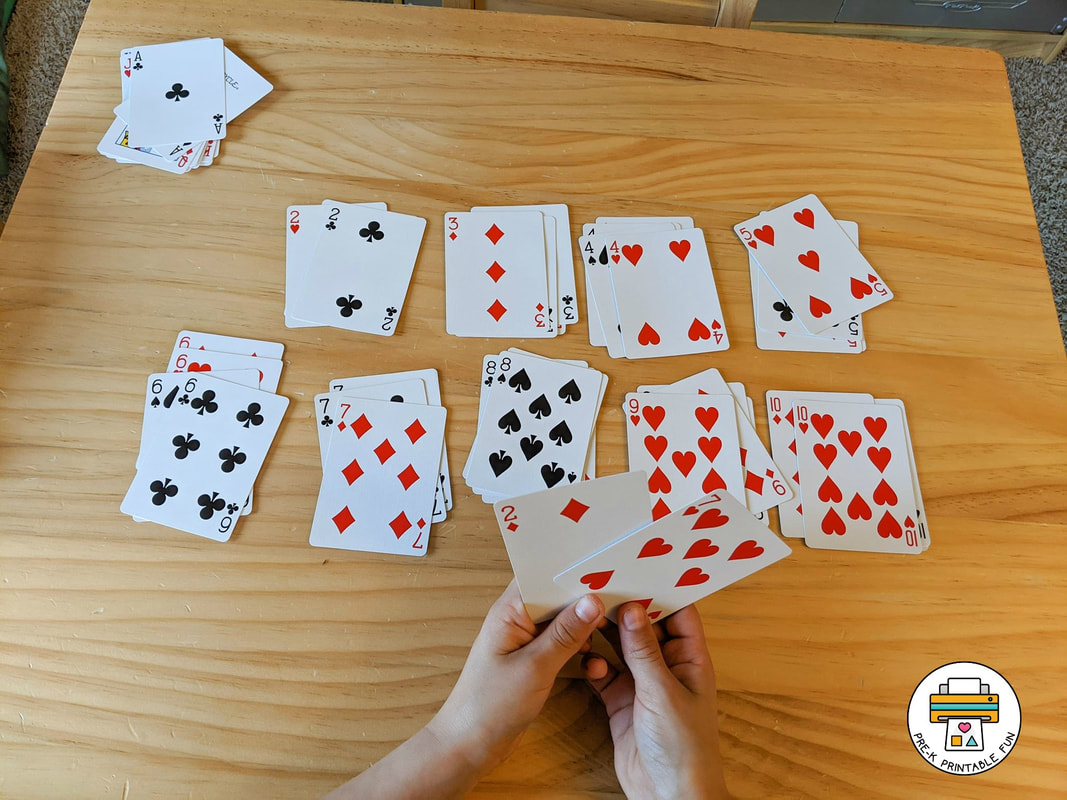
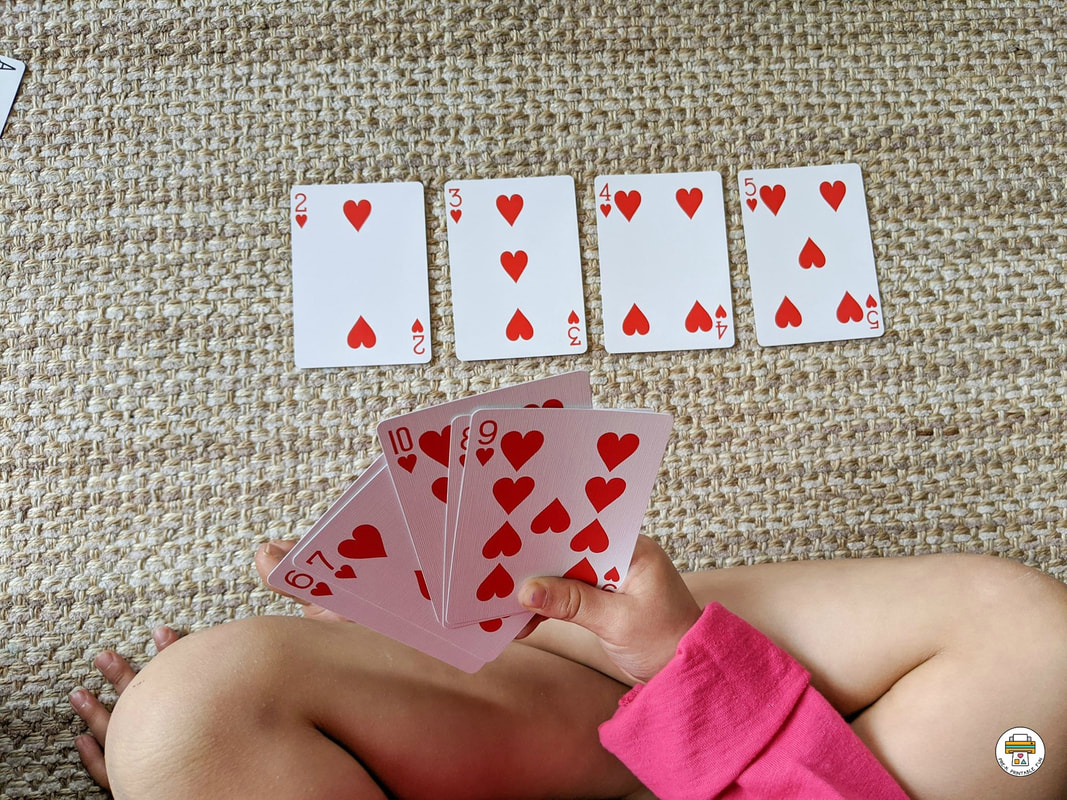
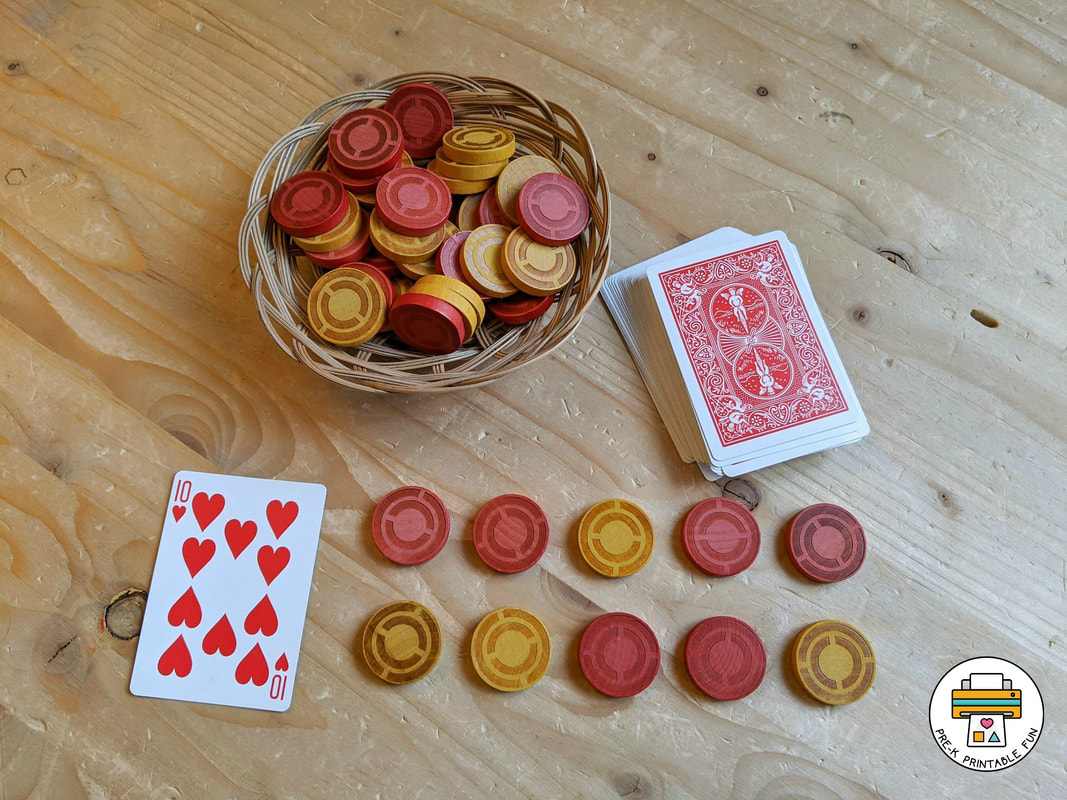
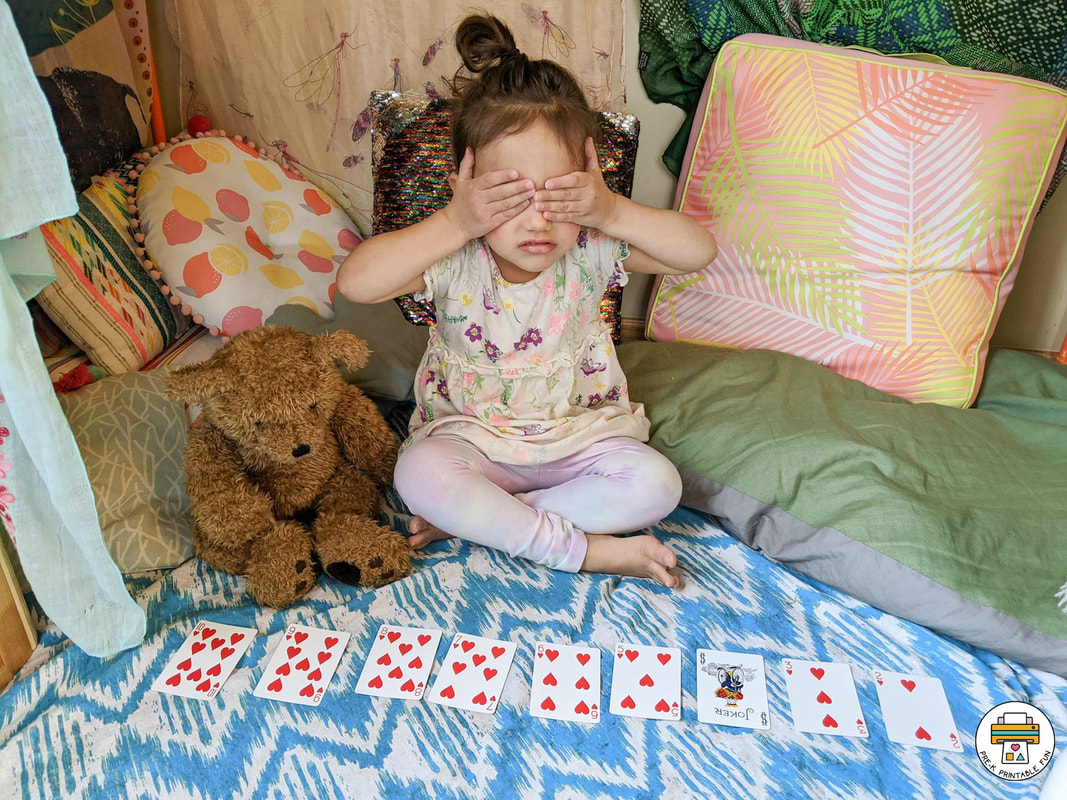
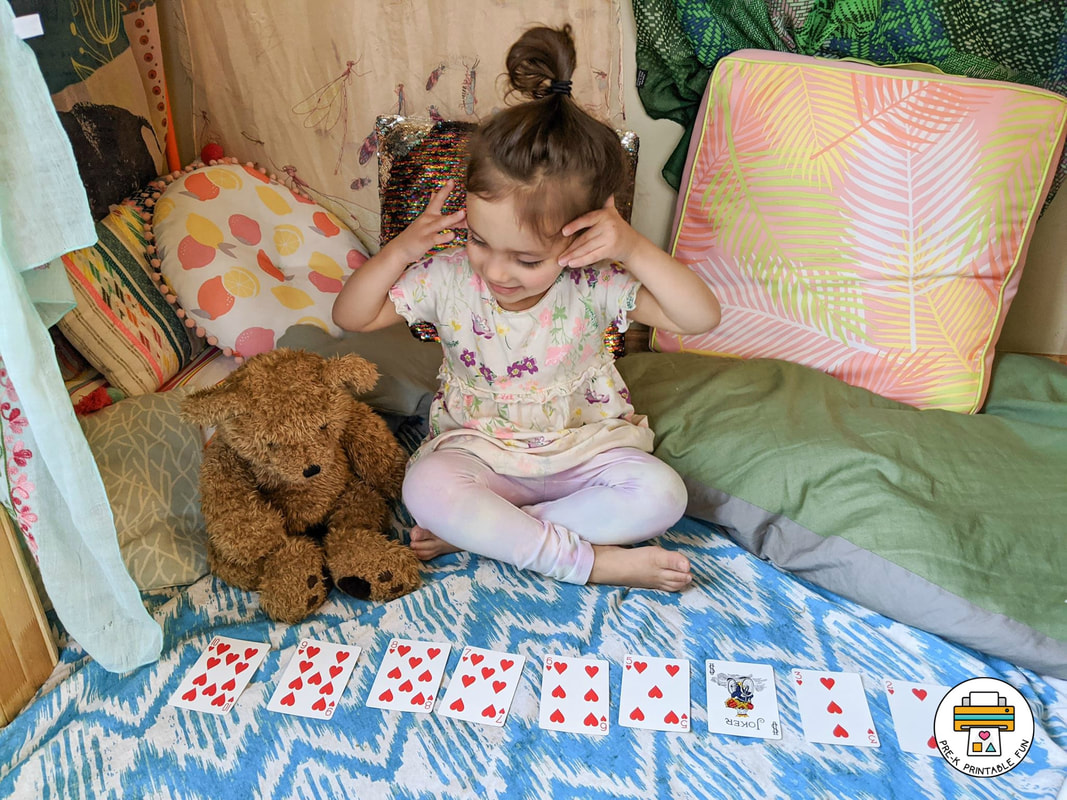
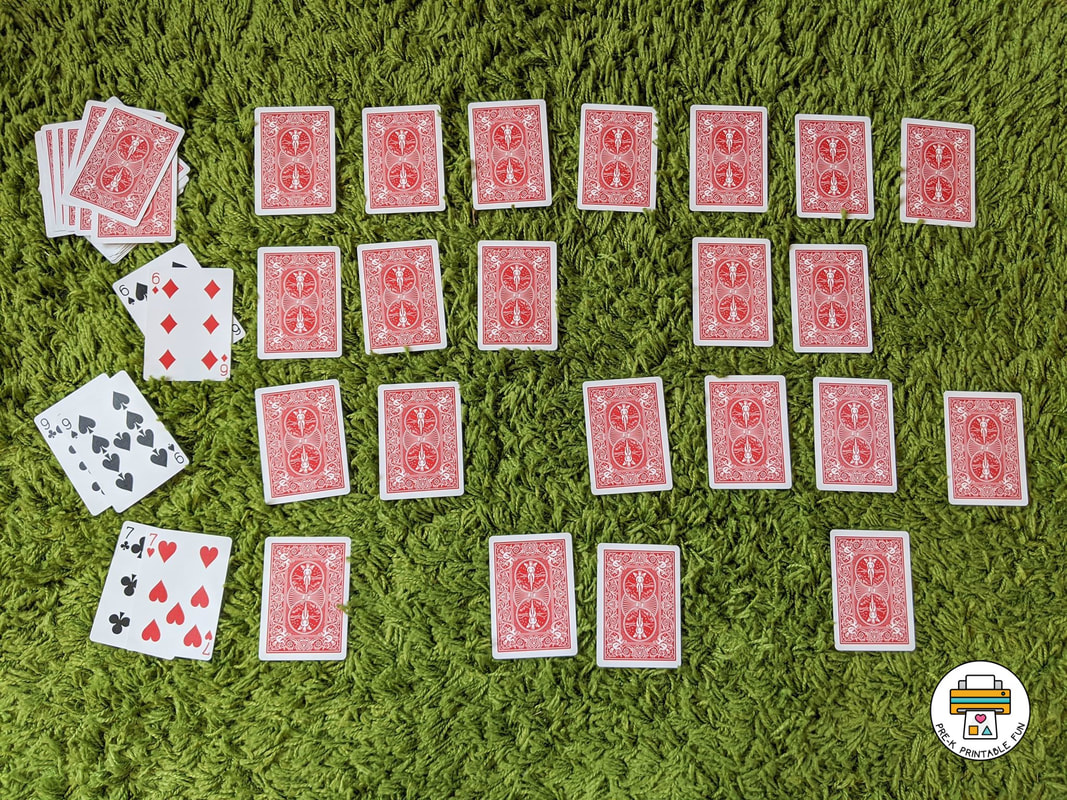
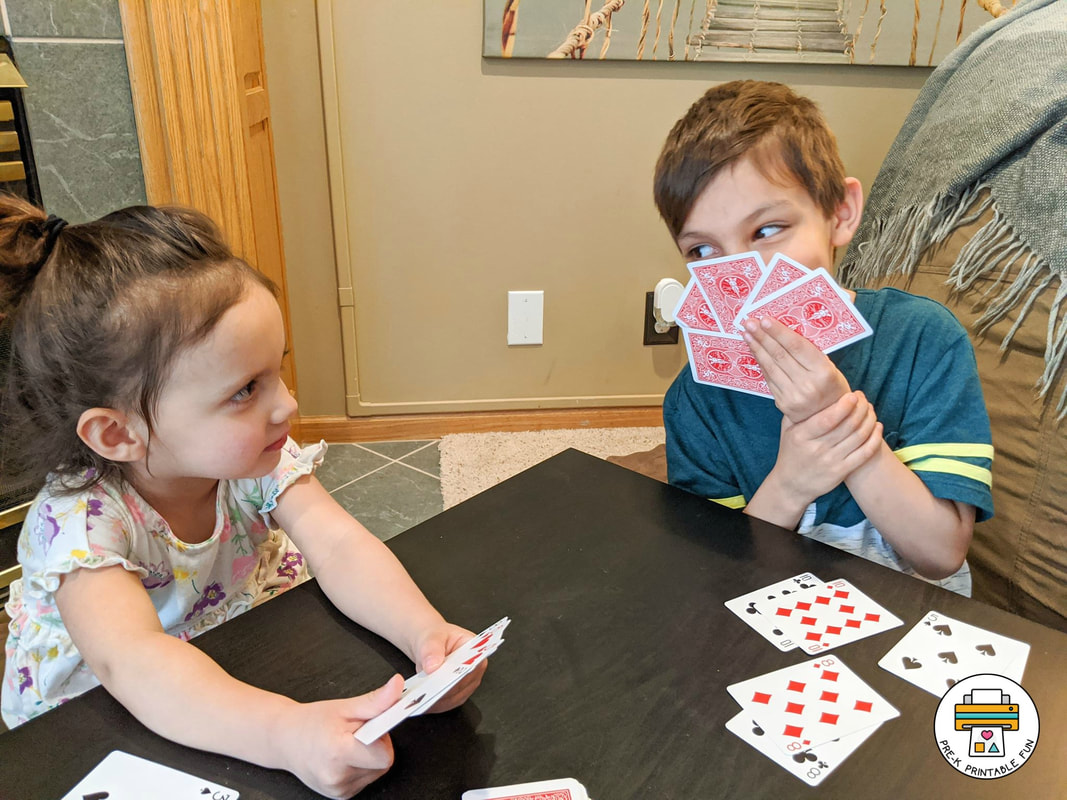


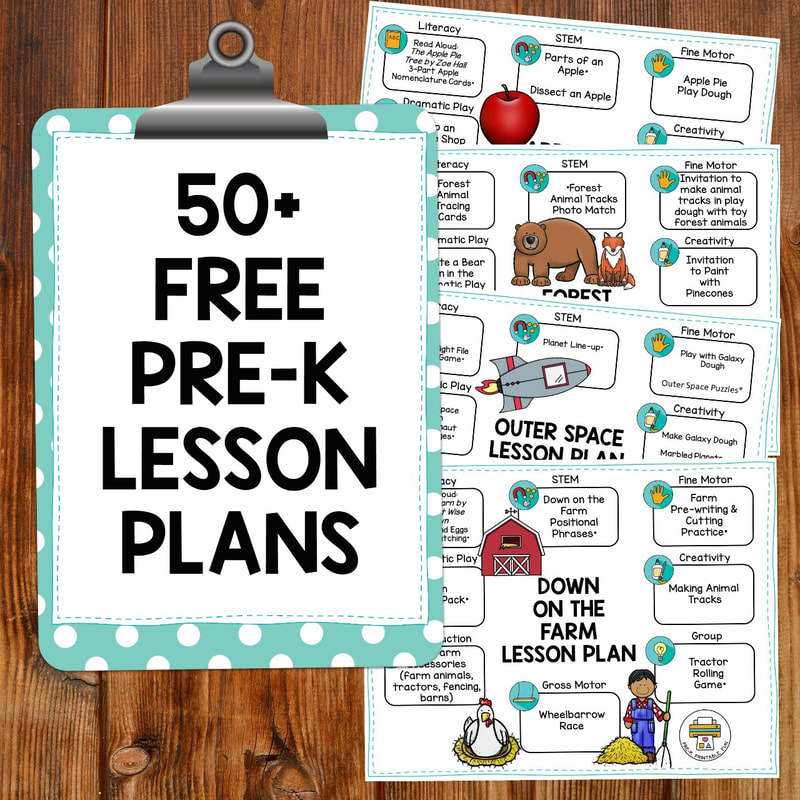
 RSS Feed
RSS Feed
